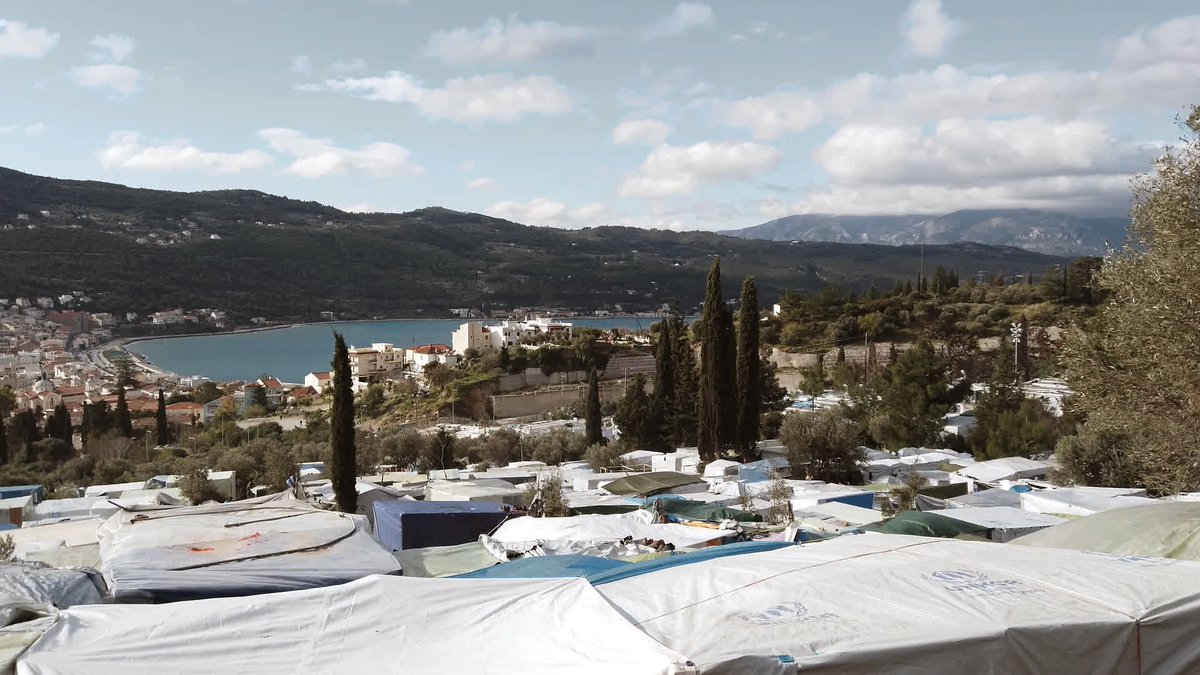Threading together contributions from the new @Ger_Law_Journal special issue, Border Justice, co-edited with @ProfCCostello. I learned a lot from these!
Thanks to @markard_chair and @MattHGoldmann for their diligent editorial support. Our intro is here: https://www.cambridge.org/core/journals/german-law-journal/article/border-justice-migration-and-accountability-for-human-rights-violations/F43189E2B5EA3801157277E8C80F8623">https://www.cambridge.org/core/jour...
Thanks to @markard_chair and @MattHGoldmann for their diligent editorial support. Our intro is here: https://www.cambridge.org/core/journals/german-law-journal/article/border-justice-migration-and-accountability-for-human-rights-violations/F43189E2B5EA3801157277E8C80F8623">https://www.cambridge.org/core/jour...
@tgammeltoft and @NDFTan propose a “topographical approach”—a methodology to examine human rights cases, both actual and potential. They seek to integrate multiple legal disciplines through one spatial lens: https://www.cambridge.org/core/journals/german-law-journal/article/topographical-approach-to-accountability-for-human-rights-violations-in-migration-control/E01EE8A476231ABBE00EFEB0095F4E3A">https://www.cambridge.org/core/jour...
@ProfCCostello, @calibasak and Cunningham demonstrate, importantly: the “progressiveness” of interpretations different tribunals give to non-refoulement does not necessarily have an inverse correlation with their respective levels of “bindingness” https://www.cambridge.org/core/journals/german-law-journal/article/hard-protection-through-soft-courts-nonrefoulement-before-the-united-nations-treaty-bodies/ECC8BF6783058183A59A5D06DF74E036">https://www.cambridge.org/core/jour...
Moreno-Lax develops a powerful theory of functional jurisdiction in offshore contexts, based also on her work as a litigator at the ECtHR w/ @GLAN_LAW https://www.cambridge.org/core/journals/german-law-journal/article/architecture-of-functional-jurisdiction-unpacking-contactless-controlon-public-powers-ss-and-others-v-italy-and-the-operational-model/AA2DADF2F1DCDD19E8F9E6E316D7C110">https://www.cambridge.org/core/jour...
And following her, Papastavridis illuminates the relationships between human rights law and the law of the sea in such cases: https://www.cambridge.org/core/journals/german-law-journal/article/european-convention-of-human-rights-and-migration-at-sea-reading-the-jurisdictional-threshold-of-the-convention-under-the-law-of-the-sea-paradigm/4EAFB6C224386882CD80C441F708E9B8">https://www.cambridge.org/core/jour...
Stoyanova maps out the fraught relationship between the enforcement of anti-smuggling laws and obligations under the right to life https://www.cambridge.org/core/journals/german-law-journal/article/european-convention-of-human-rights-and-migration-at-sea-reading-the-jurisdictional-threshold-of-the-convention-under-the-law-of-the-sea-paradigm/4EAFB6C224386882CD80C441F708E9B8">https://www.cambridge.org/core/jour...
@CarlaFerstman focuses on due diligence obligations applying to states that provide aid to others in the context of border enforcement policies, Particularly the EU and the UK in their support of Libya https://www.cambridge.org/core/journals/german-law-journal/article/european-convention-of-human-rights-and-migration-at-sea-reading-the-jurisdictional-threshold-of-the-convention-under-the-law-of-the-sea-paradigm/4EAFB6C224386882CD80C441F708E9B8">https://www.cambridge.org/core/jour...
Also applying a due diligence framework, @DariaDavitti focuses on private military contractors and their involvement in border enforcement activities. She defines their work as imposing high human rights risks https://www.cambridge.org/core/services/aop-cambridge-core/content/view/A4088521496623A75C3B77E2E2CE3020/S207183222000019Xa.pdf/beyond_the_governance_gap_accountability_in_privatized_migration_control.pdf">https://www.cambridge.org/core/serv...
@Lilian_TS provides a study of the relatively little known European Asylum Support Office (EASO). You’ll find an ingenious example of a bureaucratic structure seemingly designed to systematically evade accountability: https://www.cambridge.org/core/journals/german-law-journal/article/holding-the-european-asylum-support-office-accountable-for-its-role-in-asylum-decisionmaking-mission-impossible/5E1F99B55B38293295AD7469E8051AAA">https://www.cambridge.org/core/jour...
Complementing that point, @MelanieFink1’s analysis of #frontex liability for damages at #cjeu further illuminates this accountability gap in EU institutions: https://www.cambridge.org/core/journals/german-law-journal/article/action-for-damages-as-a-fundamental-rights-remedy-holding-frontex-liable/8350DBBC6DC5F504D414F26E61B0FB8C">https://www.cambridge.org/core/jour...
From there we move to another article on torts; @Gabriellellell shows how even the most “generous”settlements in lawsuits against violations in Australia’s offshore facilities failed to advance necessary aspects of hunan rights accountability https://www.cambridge.org/core/journals/german-law-journal/article/challenges-to-australias-offshore-detention-regime-and-the-limits-of-strategic-tort-litigation/E76D7E0F03251A5465314297262EC301">https://www.cambridge.org/core/jour...
@YannisKalpouzos discusses international criminal law. His is a deconstructive take, if you will: not less than advancing migrant rights, the relevant campaigns serve to illuminate the shortcomings of the discipline itself: https://www.cambridge.org/core/journals/german-law-journal/article/international-criminal-law-and-the-violence-against-migrants/EA6FCCD5641D1249C3B6ACA642BBF341">https://www.cambridge.org/core/jour...
We close with my own article, which explains the centrality of rescue activism for the claims of migrants at sea, and tries to extrapolate some general insights on human rights. I lightly engage Hohfeld, as well as Arendt’s thinking on civil disobedience: https://www.cambridge.org/core/journals/german-law-journal/article/right-to-perform-rescue-at-sea-jurisprudence-and-drowning/3A9213ACE54457D8AC3D125BBA820EFD">https://www.cambridge.org/core/jour...
The issue was finalized, of course, before #Covid_19 went global. I expect that the pandemic will change much of the discussion on border justice, and plan to write a about that. But there will also be important continuums—the pandemic being the great accelerator that it is. FIN

 Read on Twitter
Read on Twitter


